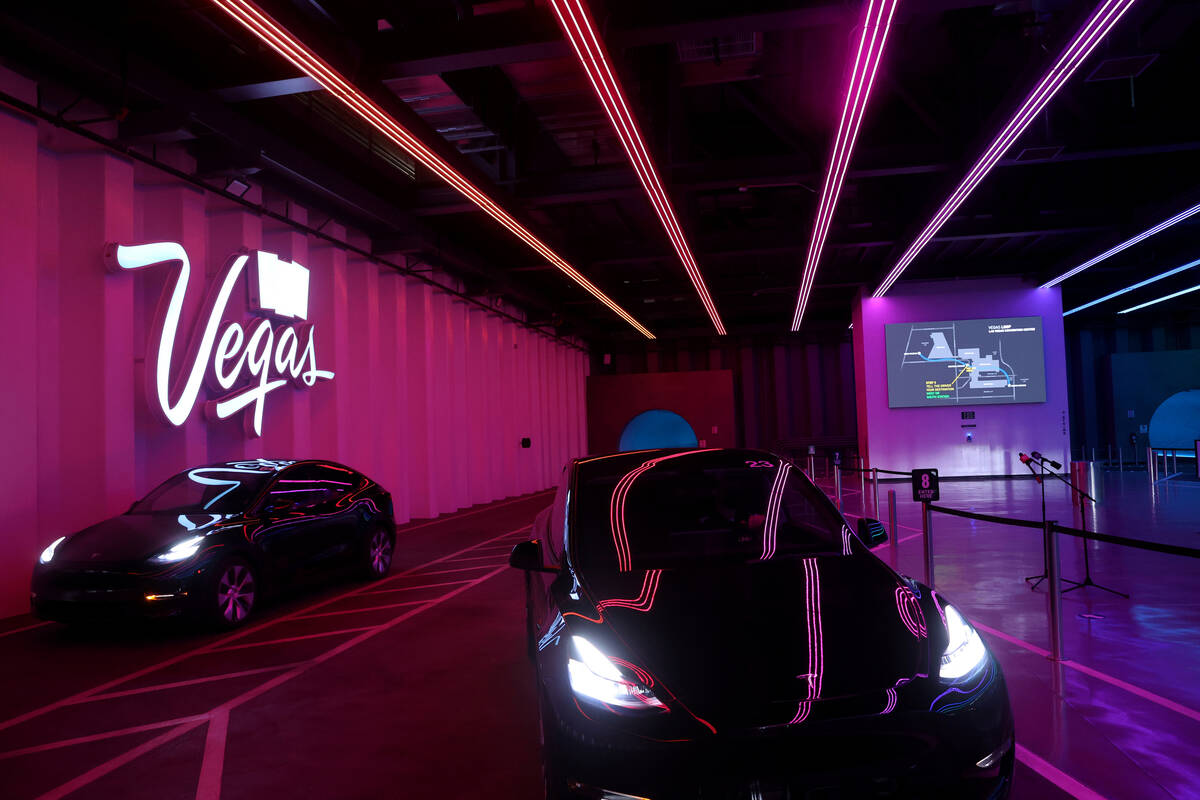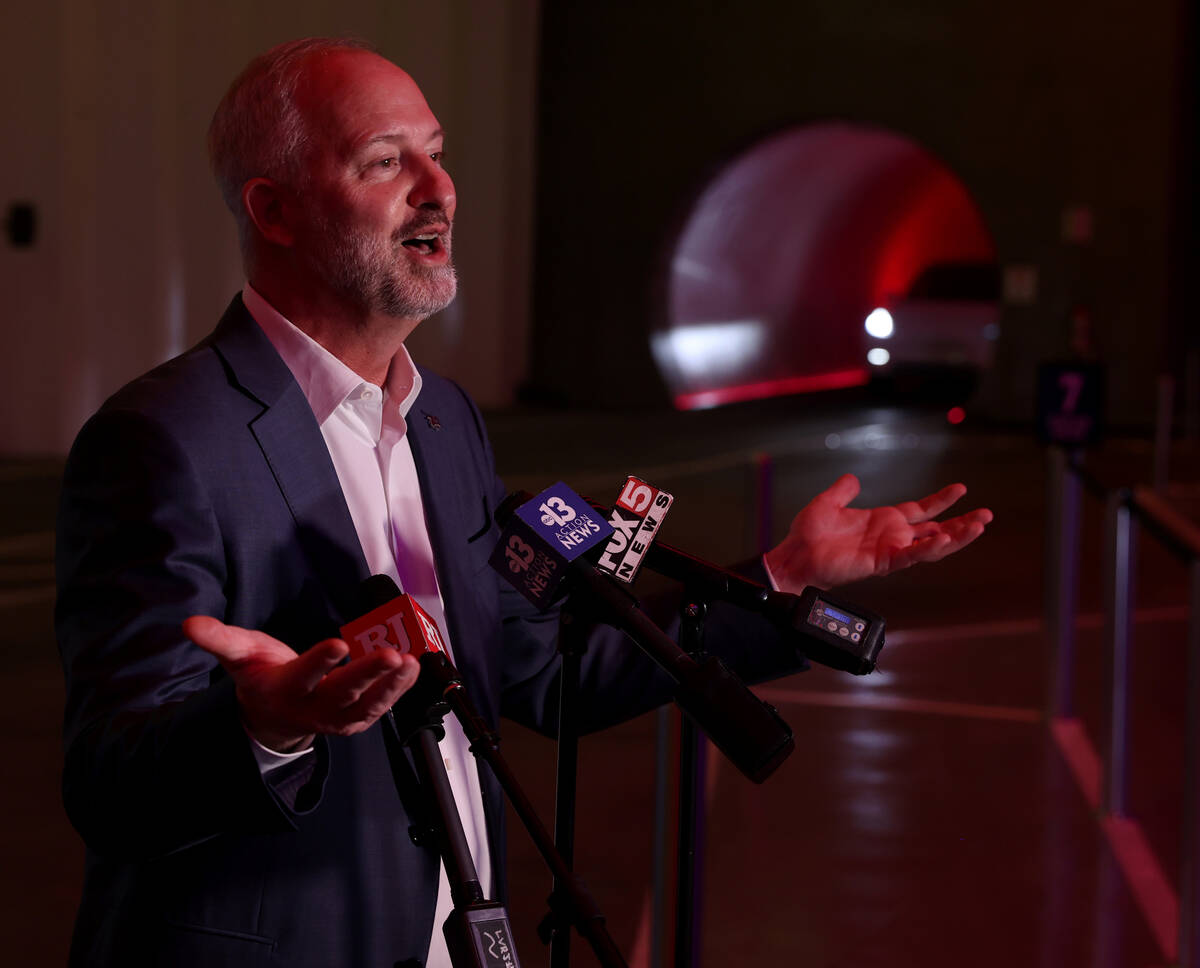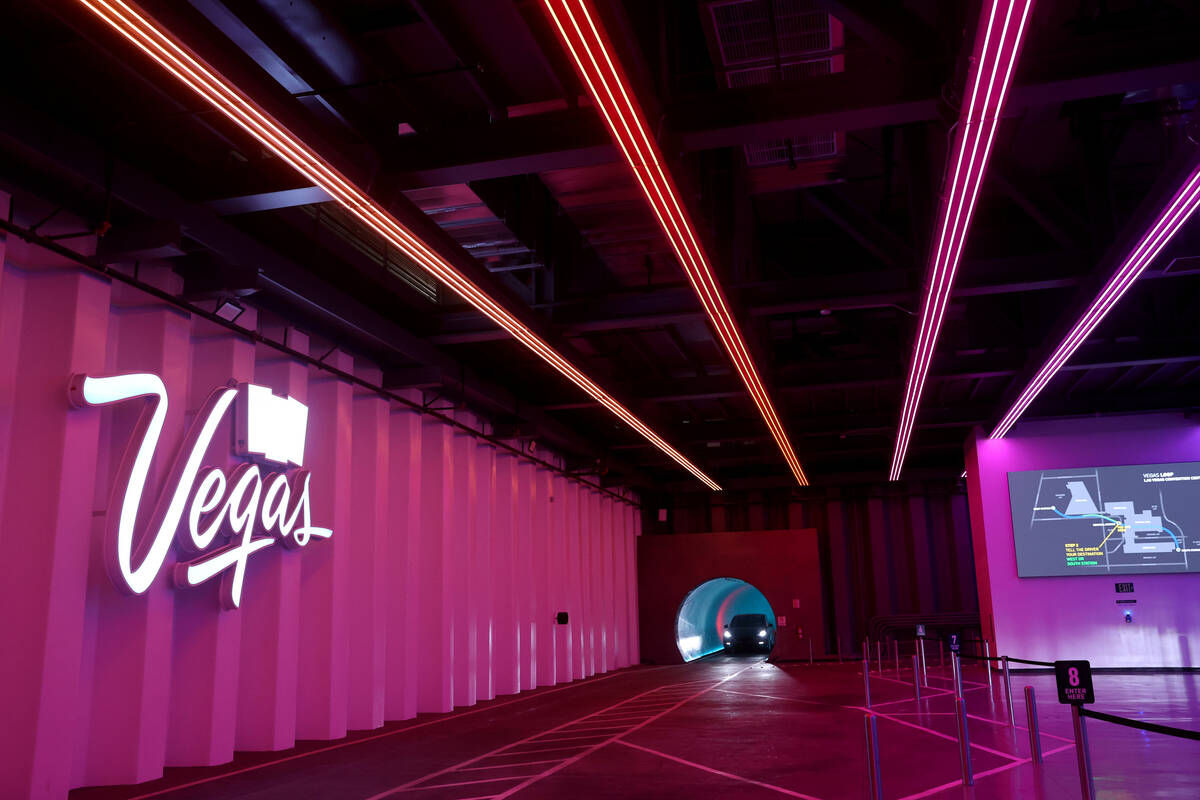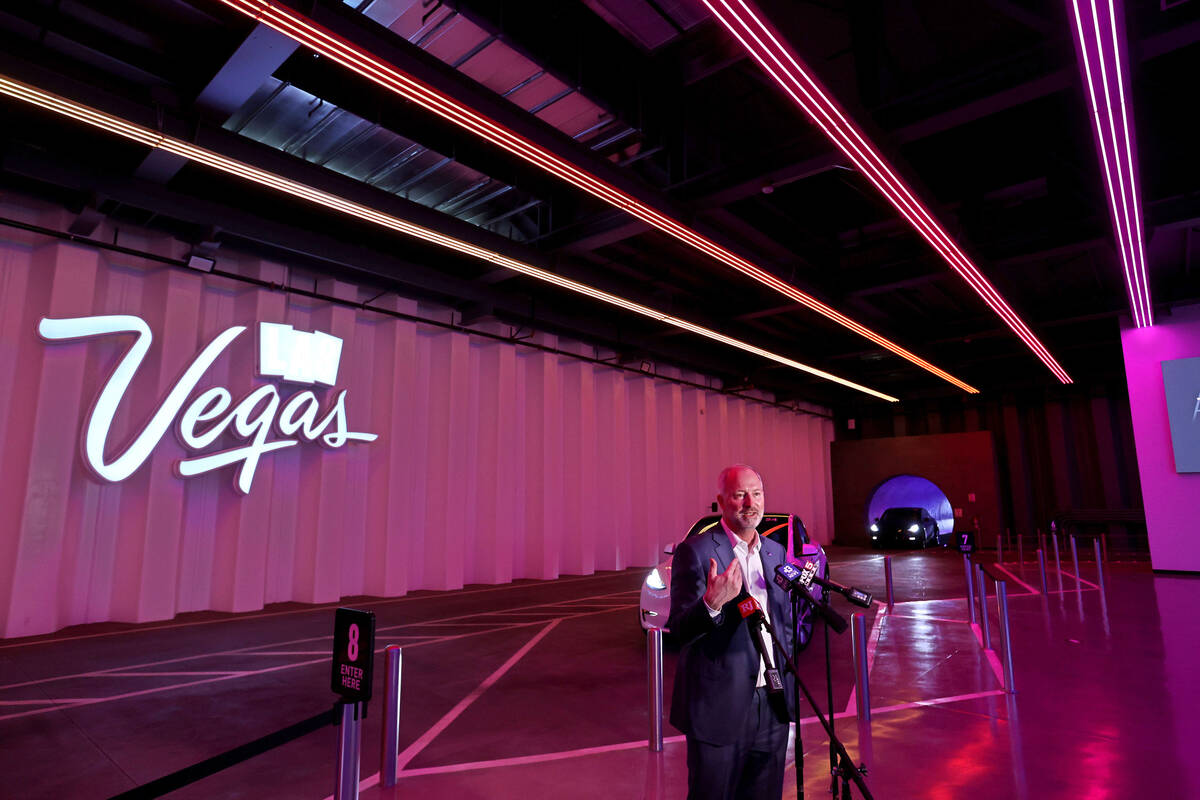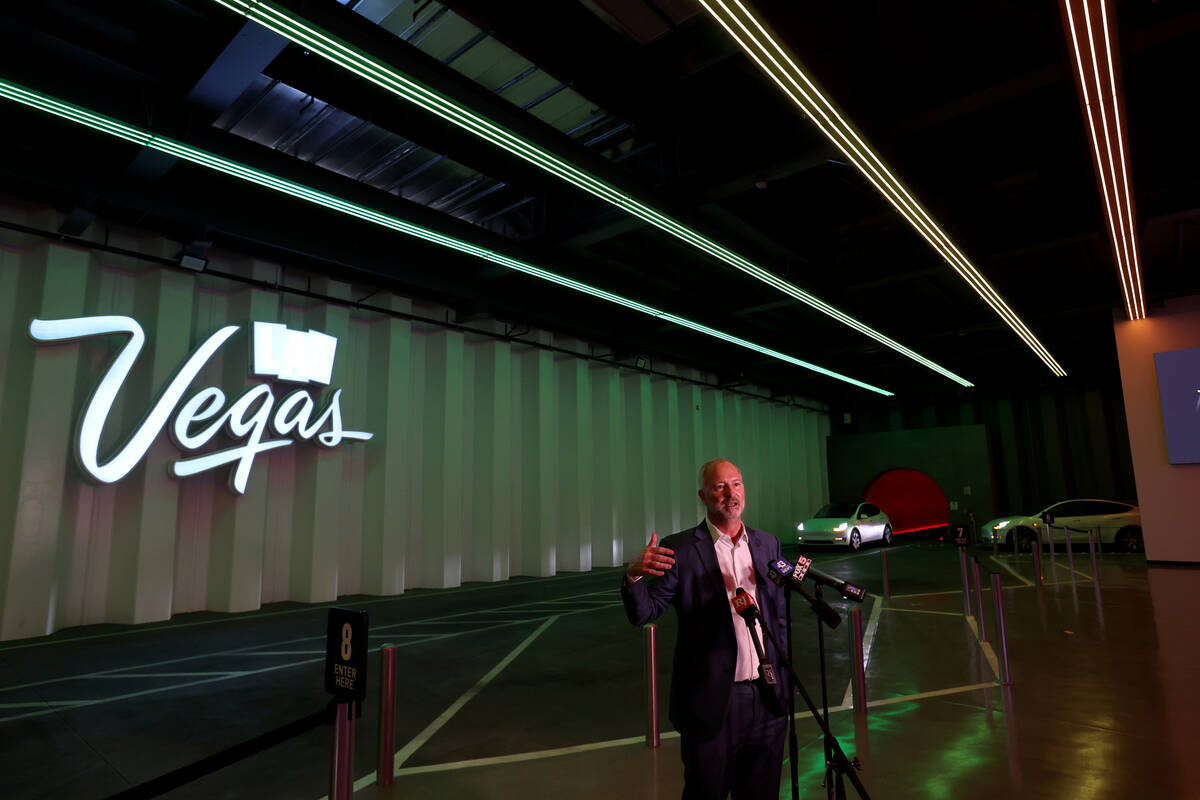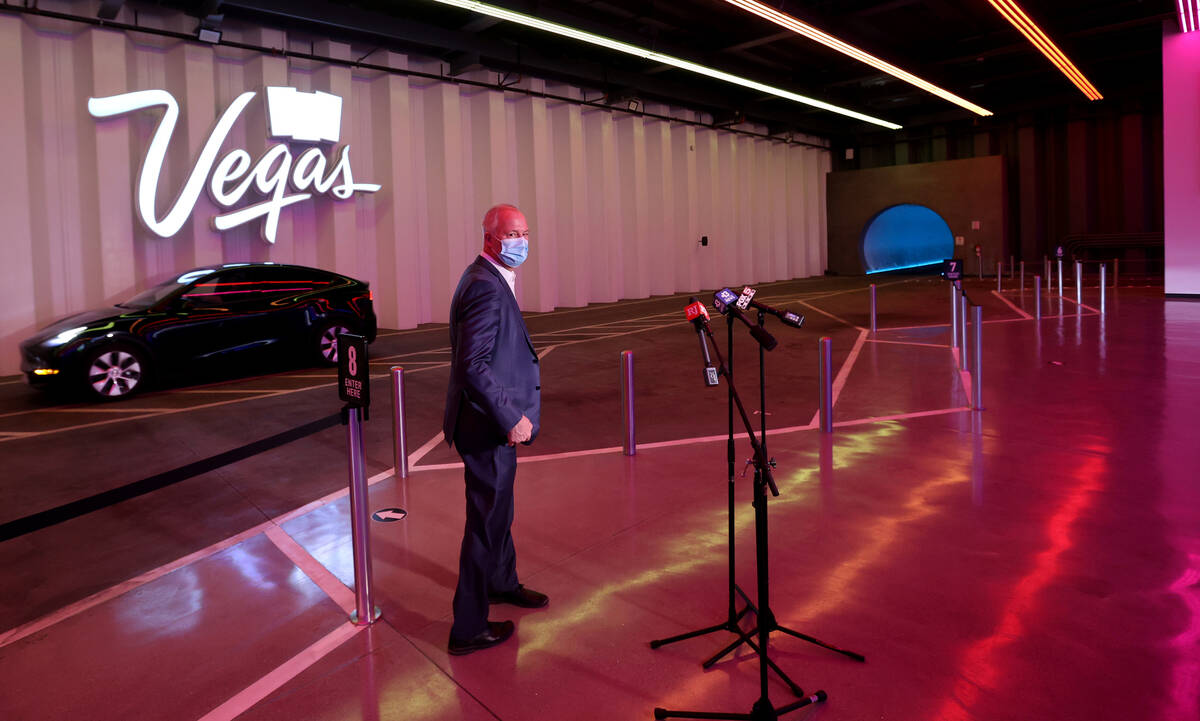Underground travel in Strip, stadium areas moves closer to reality
Clark County Commissioners approved plans for the Boring Co.’s Vegas Loop system Wednesday, moving the Elon Musk-owned transportation company closer to starting to dig the underground tunnels.
The approval of a 50-year franchise agreement between the county and Boring sets the stage for the permitting process to begin, which would lead to the start of construction of the 15-mile dual loop system.
Boring’s plan calls for a mostly underground system operating mainly in the Resort Corridor with stations at various resorts and connections to Allegiant Stadium and UNLV. Riders will be transported via private Tesla model vehicles.
The county’s approval is only for the alignment of the proposed route. Each one of the planned 51 stops will need separate land use permits approved before being developed.
Boring also will need a separate franchise agreement with Las Vegas for the portion of the system that runs underground in the city. A Las Vegas spokesperson said the agreement could be up for approval next month.
Boring President Steve Davis said the system would be built in phases. The way the tunnel is set up, once an individual station is complete it will come online immediately.
Initial plans call for having five to 10 stations coming online within the first six months once construction begins, Davis said. Thereafter, between 15 to 20 stations would be added each year until full build-out is reached, he said.
Once fully operational, Davis said the system is expected to handle 57,000 riders per hour.
The system is planned to be a point-to-point system, so passengers won’t have to stop at each station along the way. A rider could get picked up at the Las Vegas Convention Center, for example, and be directly transported to Allegiant Stadium without having to stop at each resort along the way.
“The most important thing is the express nature of this,” Davis said. “In Las Vegas you have a very populated, very impressive resort or property and you have 51 stations that’s being proposed here and (if) you have to stop at every one, that’s a very, very long trip. If you can get in a vehicle and not wait for the vehicle, walk into a station and the vehicle is waiting for you. And go directly to your (destination) station, you can really solve the traffic problem.”
Davis said a 3.6 mile ride between the Las Vegas Convention Center and Allegiant Stadium would take 4 minutes and cost $6 per vehicle.
“This is not transportation for the wealthy,” Davis said. “It’s very affordable, very accessible and very, very comfortable.”
The entire system will be funded privately, with no taxpayer money used to construct it.
Boring will have three years to complete construction or have at least a portion of the system that is in the county’s right-of-way in operation.
Each year the company must provide the county with a detailed financial statement. Boring would be required to pay the county a quarterly franchise fee based on how much revenue is generated.
If quarterly gross revenue is less than or equal to $17.5 million, Boring would pay the county 0.5 percent of that revenue. If quarterly gross revenue exceeds $17.5 million, Boring would pay the county 0.5 percent of the first $17.5 million and 5 percent of any revenue in excess of that.
Safety is a key goal of the system, Davis said, with 45 safety drills already conducted with local first responders at the company’s Convention Center loop, which is already in operation. Those drills included tunnel rescue training.
“When you introduce a new piece of infrastructure, it is fundamentally important that the police department, fire department and the county are all partners to make sure it is as safe and secure as possible,” Davis said.
If the Vegas Loop is successful once constructed, Davis said he sees it as only the beginning of what is possible.
“This should expand further,” Davis said. “Additional communities, hopefully to Los Angeles at some point, once our tunneling speed can justify it, which it cannot today but it will pretty soon.”
Several area stakeholders including various resort, construction and union representatives spoke in favor of the project.
“Our experience with the Boring Company has been a great partnership,” said Gerald Gardner, general counsel and senior vice president of government affairs for Resorts World. A tunnel linking Resorts World and the convention center is currently being dug.
“In just a few months we’re going to open the first actual Boring Company station at a Las Vegas Strip resort.” Gardner added. “We’re very thrilled about that and are equally excited about the prospect with the Boring Company moving forward with their vision of the larger project. We think this has incredible potential to expand through the entire valley.”
Contact Mick Akers at makers@reviewjournal.com or 702-387-2920. Follow @mickakers on Twitter.



